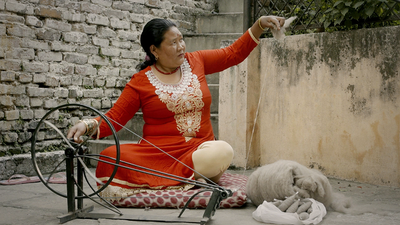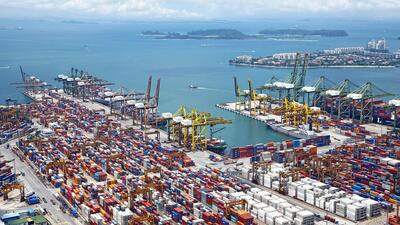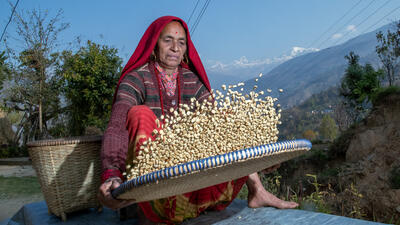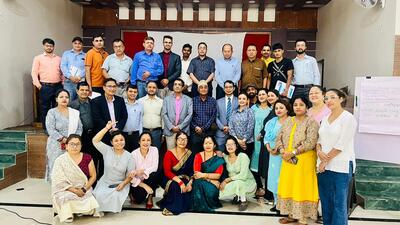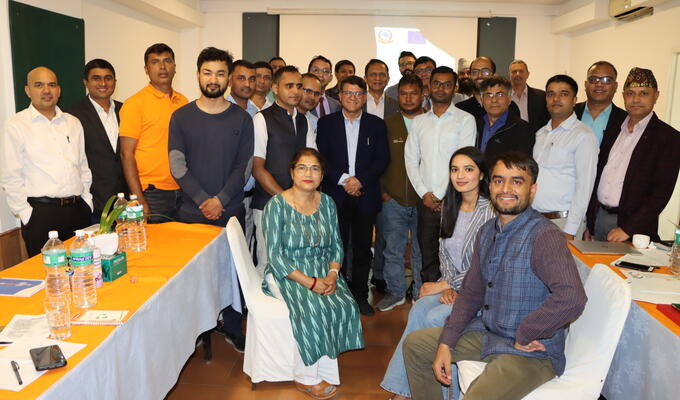

Nepalese Government officials trained in multilateral trading system
An ITC seminar offered officers of relevant Government agencies in Nepal the opportunity to learn about: Nepal’s graduation from being a least developed country; MC12 outcomes; and WTO’s multilateral trading system
A seminar on ‘WTO and MC12 Outcomes’ offered an opportunity for two dozen of relevant officers of the Government of Nepal to deepen their understanding of the multilateral trading system. The World Trade Organization (WTO) and the International Trade Centre’s EU-funded Nepal Trade and Investment Programme (TIP) jointly organized the five-day event.
The participants appreciated the workshop at a time when Nepal is aspiring to graduate from least-developed-country (LDC) status by 2026. Senior experts from WTO gave presentations on various themes, including WTO principles and rules, and the WTO’s ongoing efforts for LDC transitions. They also touched upon the 12th Ministerial Council outcomes, next to other critical issues related to multilateral trade.
“The five-day training was fully productive for all participants. It brought together the officials of trade-related agencies and international experts to discuss trade negotiations, WTO rules, and recent updates on the graduation of LDCs,” said Durga Prasad Bhusal, Under Secretary at the Ministry of Industry, Commerce and Supplies.
Govinda Prasad Poudel, of the Ministry of Industry, Tourism, Forest and Environment said the discussions encouraged participants to enhance their skills in trade negotiations. “With these new skills, we can look beyond the traditional techniques of trade negotiations,” said Poudel.
Shishir Priadarshi, Director of the Development Division of WTO, said, WTO members adopted several decisions on key trade topics. “For the first time the MC12 outcome document acknowledges the challenges of graduating LDCs in the WTO Ministerial Declaration. It also recognizes the role that certain measures in the WTO can play in facilitating the smooth and sustainable transition for the members after graduation from the LDC category,” said Priyadarshi.
Priyadarshi continued to say that the impact of LDC graduation on Nepal is likely to be limited, adding that the country’s graduation is unlikely to affect existing trading arrangements with trading partners including India. Nepal benefits from bilateral free trade arrangements with India.
Priyadarshi also said Nepal benefits from the preferential trade regime of the European Union, which provides a three-year transition period after graduation, noting that Nepal would not require to change its bound duty or have a new schedule of commitments, after graduation.
Thakur Parajuli, a Trade Analyst at the TPR Division of WTO, highlighted various issues including anti-dumping, countervailing duties, and safeguards in international trade. Parajuli noted that 60% to 80% of global trade is subject to technical or sanitary regulations in most regions of the world.
About the EU-Nepal Trade and Investment Programme
This four-year program funded by the European Union and launched in February 2020, assists the government of Nepal to achieve sustainable and inclusive economic growth and poverty reduction by increasing trade and participation in regional and global value chains. The project also provides assistance to the sustainable and inclusive development of Nepal’s coffee and pashmina value chain, with a focus on export development.




